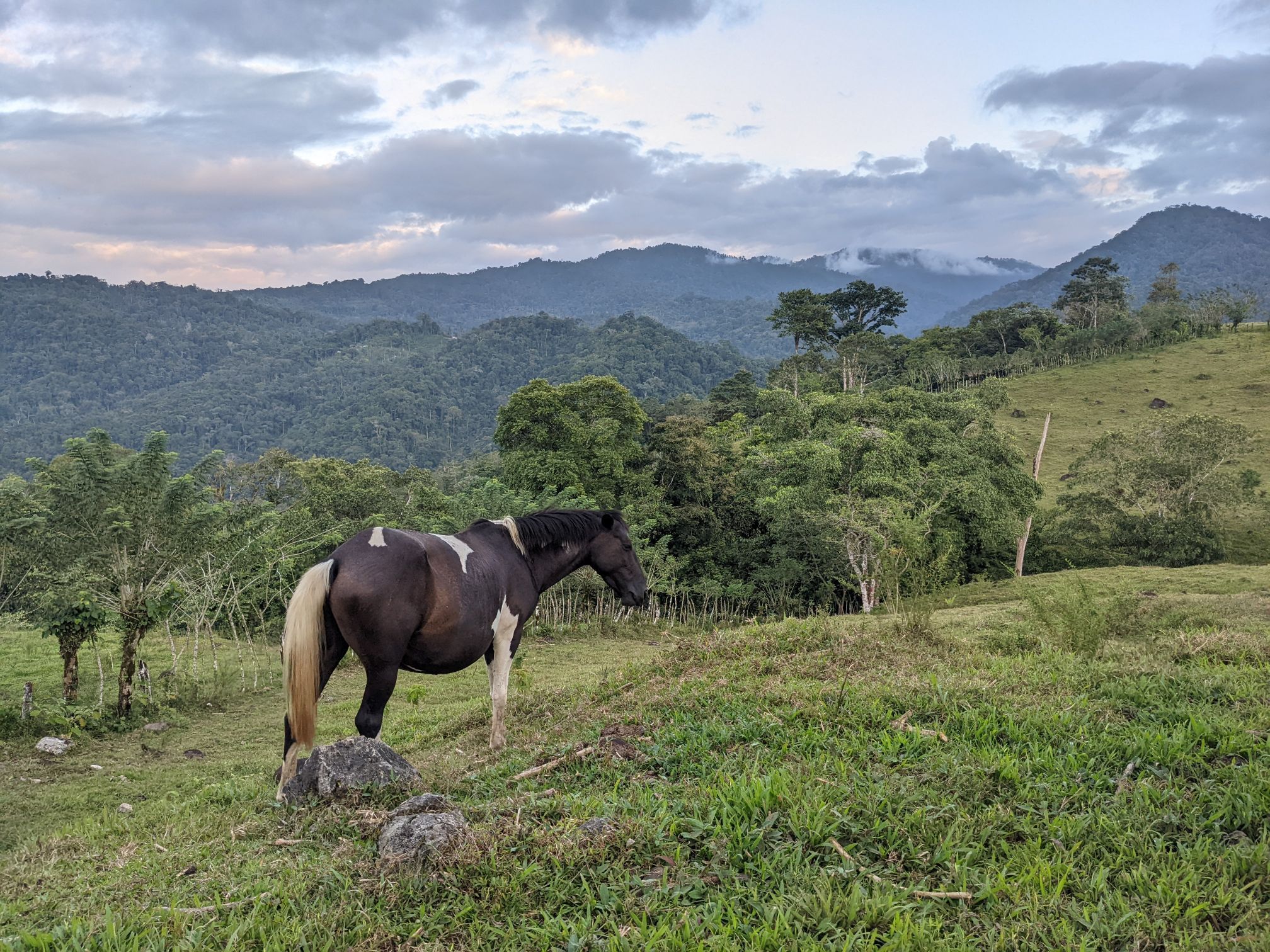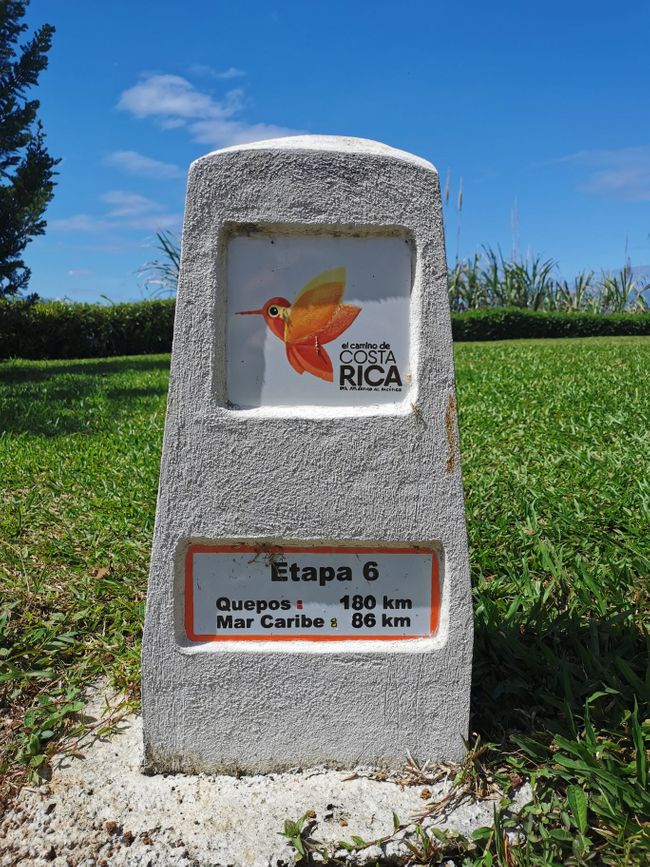The holy Cobre and views over Santiago
Publicatu: 13.04.2019
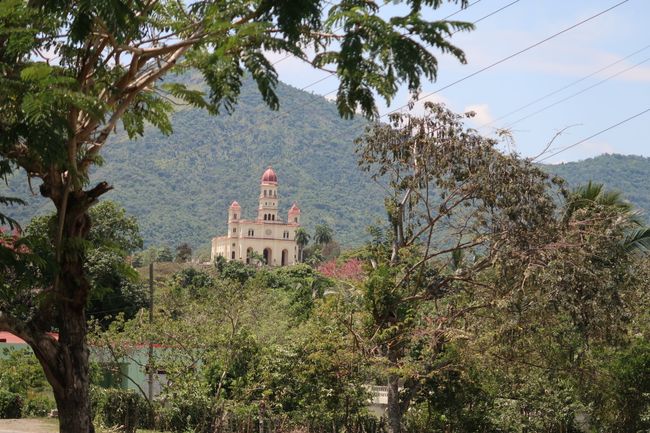
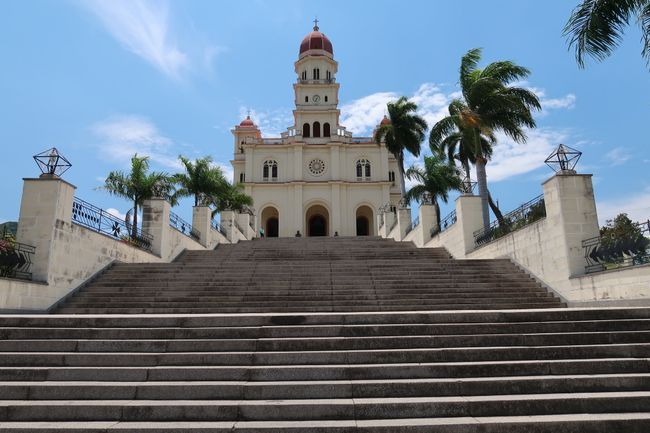
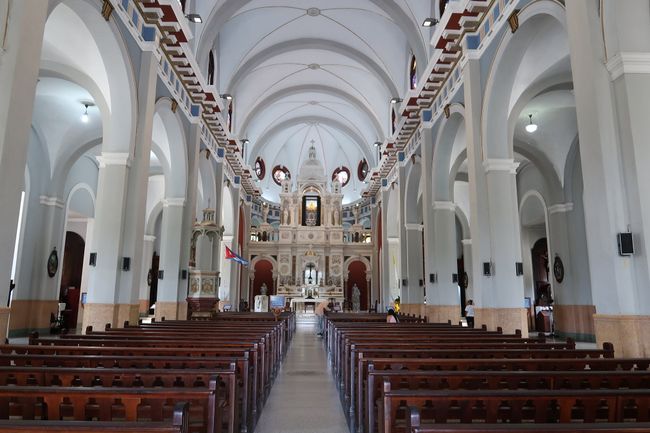
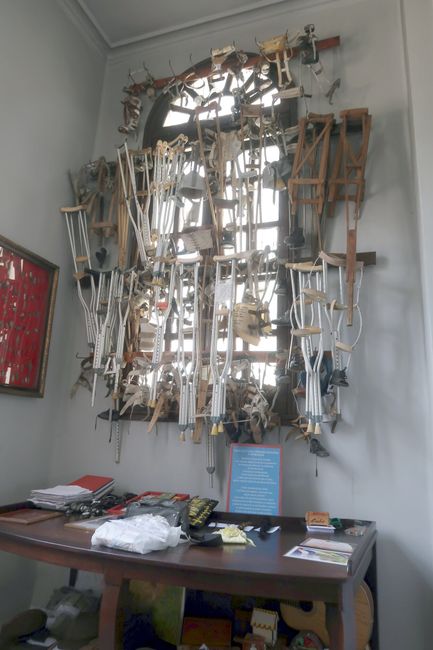
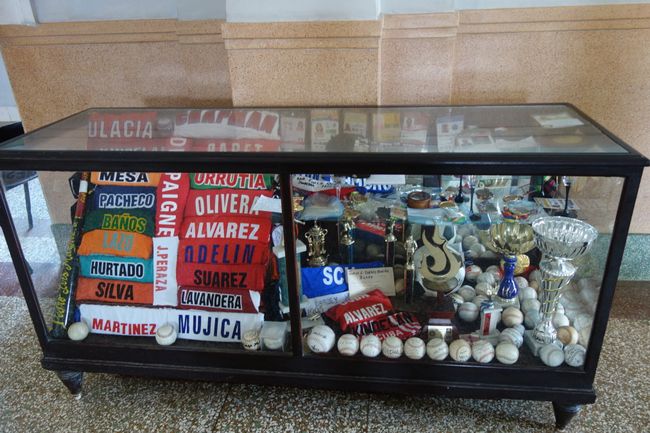
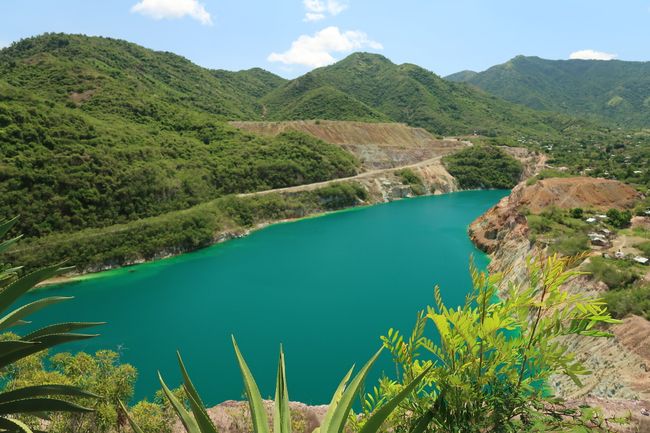
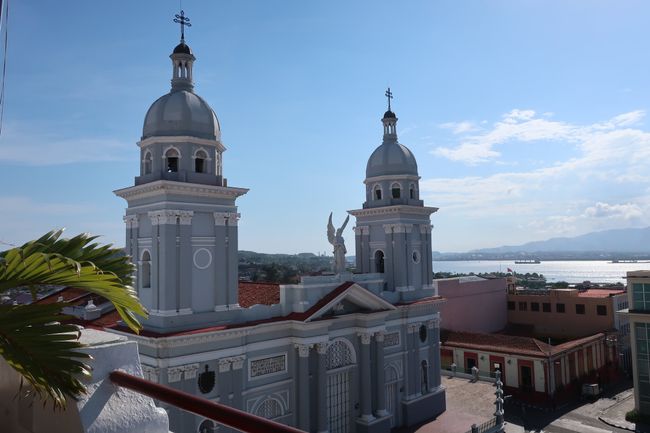
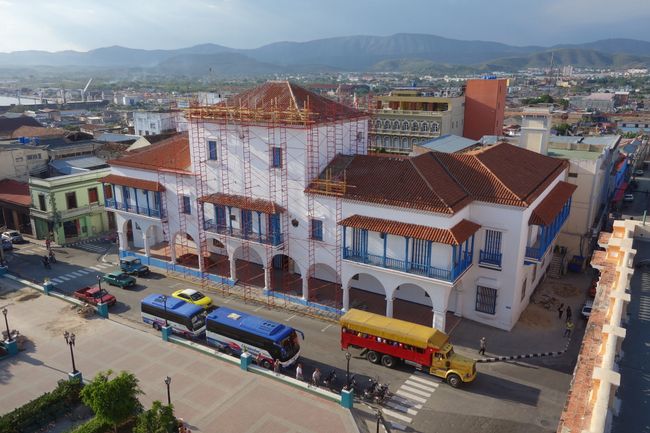
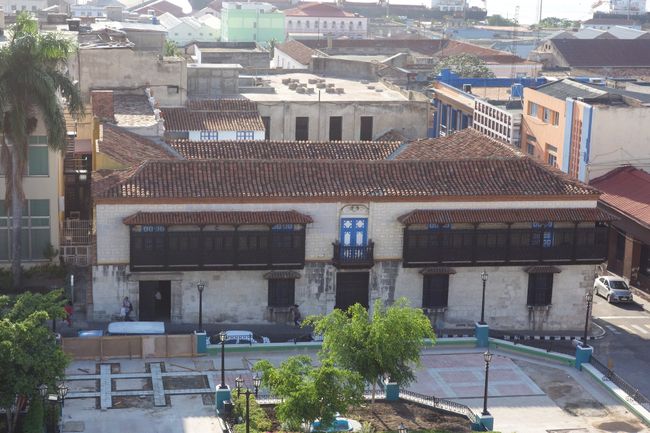
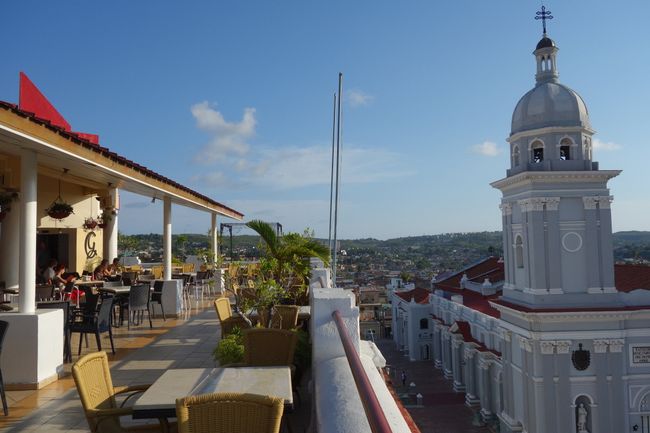
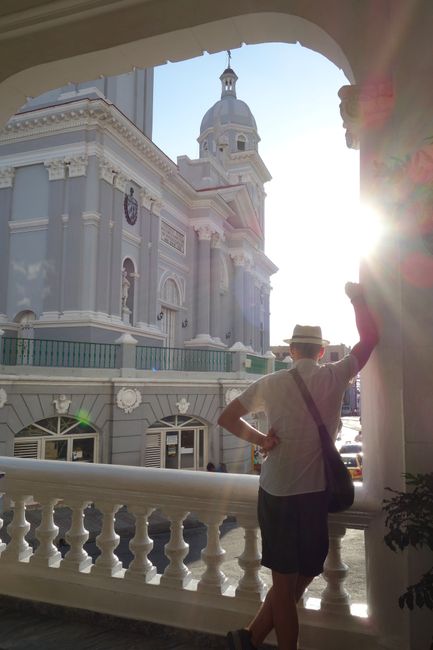
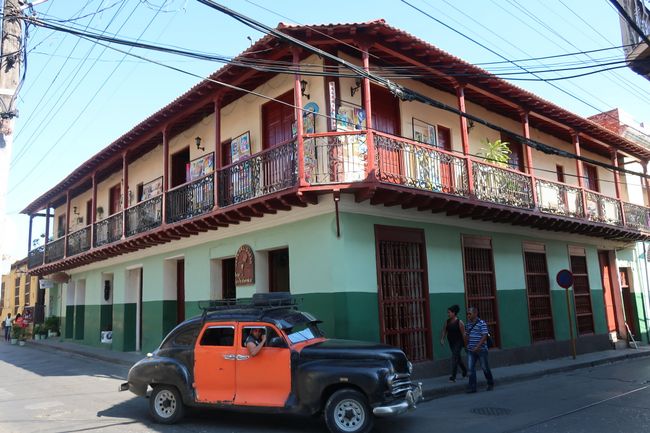
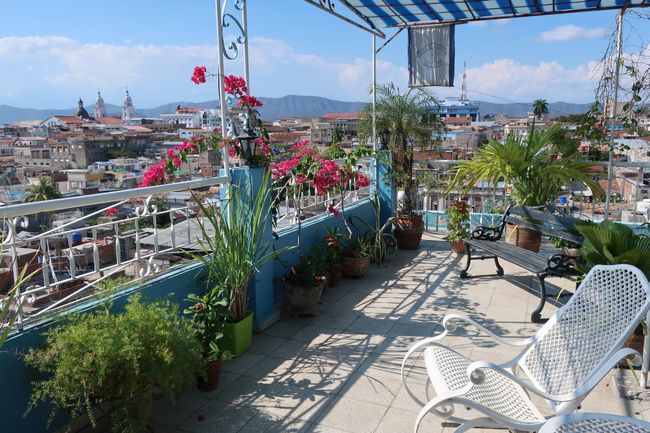
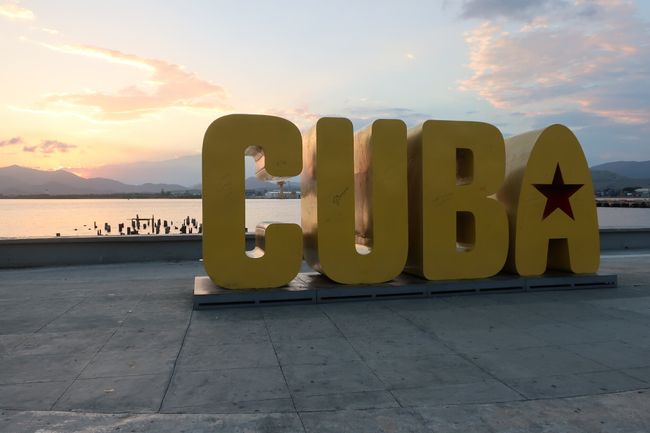
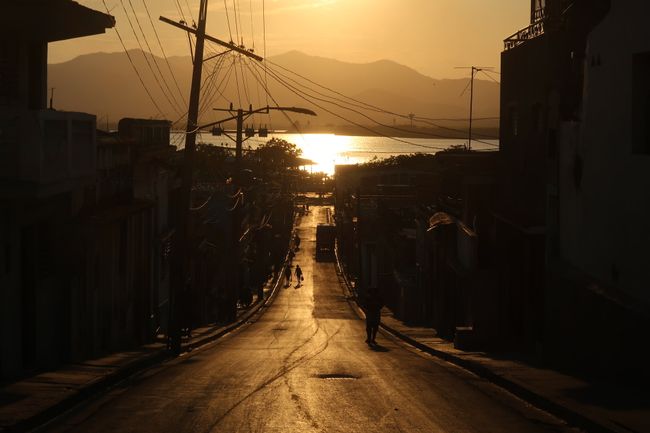
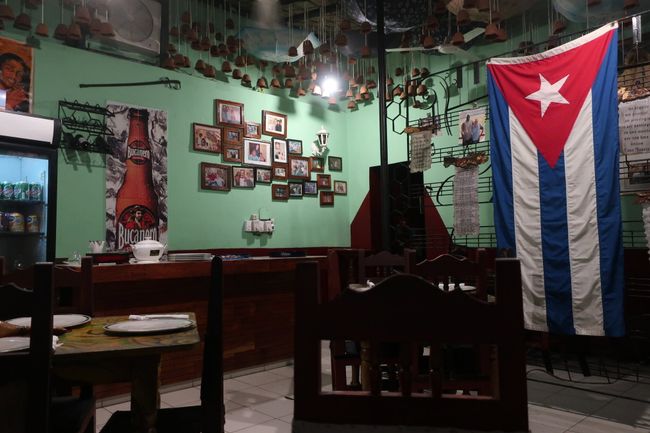
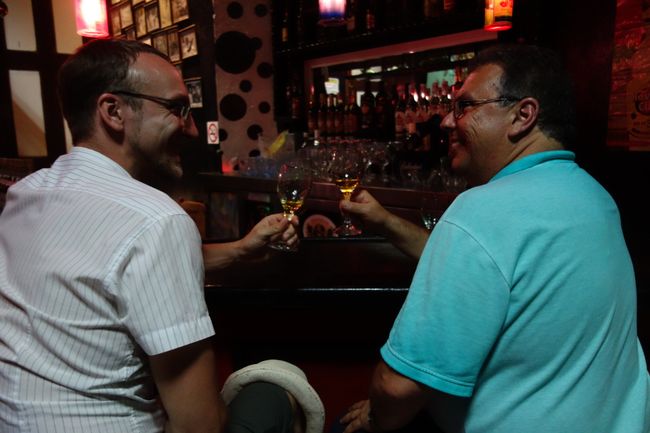
Abbonate à Newsletter
As we had planned only one day for the family visit in Holguín, we continued to Santiago de Cuba today, the second largest city in Cuba after Havana. On the way there, we decided to take a detour to the Basilica El Cobre, which is known throughout Cuba and beyond its borders and was even blessed by the Pope.
According to history, the cult figure of this church, a black Mary, was fished out of the water during rough seas and the fishermen survived the dangerous journey and later miracles accumulated around the shrine of the figure: It is interesting that the Virgen de la caridad (Virgin of Mercy) is worshipped both by Christians as Mary and by followers of the Santeria culture as the goddess Ochún. Therefore, many people pilgrimage to el Cobre to request various things: healing from an illness, success in sports competitions, relief from financial difficulties, etc. Someone in my family had already made the journey to this church in the past to ask for fertility after a long unfulfilled desire for children (by the way, she now has twins^^).
The church is located slightly secluded in the middle of the wooded mountains in the small town of El Cobre. On the way there, you could already see the basilica from a distance and since it is surrounded by so much greenery, it is also referred to as the jungle church in the travel guides. Sunflowers were already being sold by the roadside, which are usually laid at the front of the altar, but there were also small wooden altar replicas at every corner (three were sneaked into our hands immediately). The church itself is already impressive from the outside with a large staircase at the entrance. The interior appears beautifully renovated with colorful accents and columned walks on the sides, without being overloaded with grandeur. In the middle above the altar, the main protagonist, the relatively small Mary in a yellow robe, reigns.
It is customary to return to el Cobre after a wish has been fulfilled to express gratitude. Numerous exhibits adorn the interior of this church as a result: trophies of prominent athletes (along with a gold medal from Rio), no longer needed crutches, baby baptism dresses, autographs of famous people, military badges and even Ernest Hemingway's Nobel Prize medal, which he dedicated to the Cuban people and left here (only a copy hangs there, as the original was stolen once). Even non-believers seem to swear by el Cobre.
After visiting the basilica, we climbed to a beautifully located viewpoint and gasped for breath there, looking at, among other things, a large artificial lake. A local man explained to us that this lake was formed as a result of extensive copper mining in this region, and other metals also belong to the natural resources here, even gold deposits were found here a few years ago.
In the afternoon, we arrived in Santiago de Cuba and were excited about the spacious terrace with the best view of the city in our Casa Particular. This small oasis of tranquility belongs to a Ukrainian woman who has been living in Cuba for many years and with whom we had a longer conversation.
Then we explored the city center on foot. Many well-restored colonial houses adorn the central streets, as well as the beautiful main square. The town hall is particularly worth mentioning, from whose balcony Fidel delivered the first victorious speech of the successful revolution in 1959. In addition, the oldest colonial building (Casa Diego Velázques) in Cuba from 1519 and one of the oldest testimonies of the Spanish colonial period in Latin America with venerable wooden balconies is located here. The pretty blue and white church directly on the square also attracts attention.
The imposing Hotel La Casa Granda advertises a roof garden and terrace in the lobby, so we decided to take a break and treat ourselves to a cocktail there. The view was really great and the weather was at its best. You could stay here for a while!
Then we walked down to the harbor, which we could already admire from above through the sparkling water in the distance. In general, we noticed again here (similar to Holguín) how well-kept and clean the city was compared to Havana. However, there seemed to be more beggars and drunks here in larger numbers.
When hunger finally struck, we looked for a small charming restaurant in a side street. With rustic decor and authentic cuisine, we immediately felt comfortable. But the best part was that shortly after our arrival, a Cuban with a guitar played traditional songs for us, and since we were initially the only guests in the small restaurant, it felt like a private concert (and yes, we bought a CD and it has surprisingly good quality). Afterwards, we drank Piña Likör (pineapple liqueur) in the bar next door. We had been looking for it everywhere, but it was sold out everywhere at the moment and it is not available in Germany at all. However, we managed to buy the half-empty bottle from the bartender. Thanks to el Cobre!Abbonate à Newsletter
Rispondi (1)
Karin
Herrlicher Balkon und schön restaurierte Häuser im Kolonialstil, dazu Ananaslikör und auch wieder kubatypisches Wetter, eine kleine Entschädigung dafür, was an den vergangenen Tagen vielleicht nicht so euren Vorstellungen entsprach.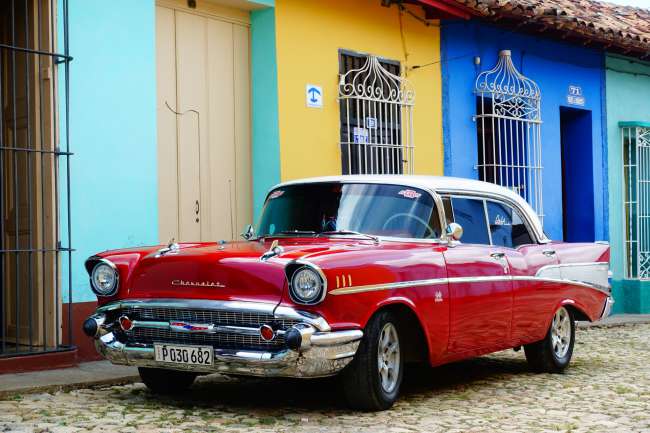
Rapporti di viaghju Cuba
